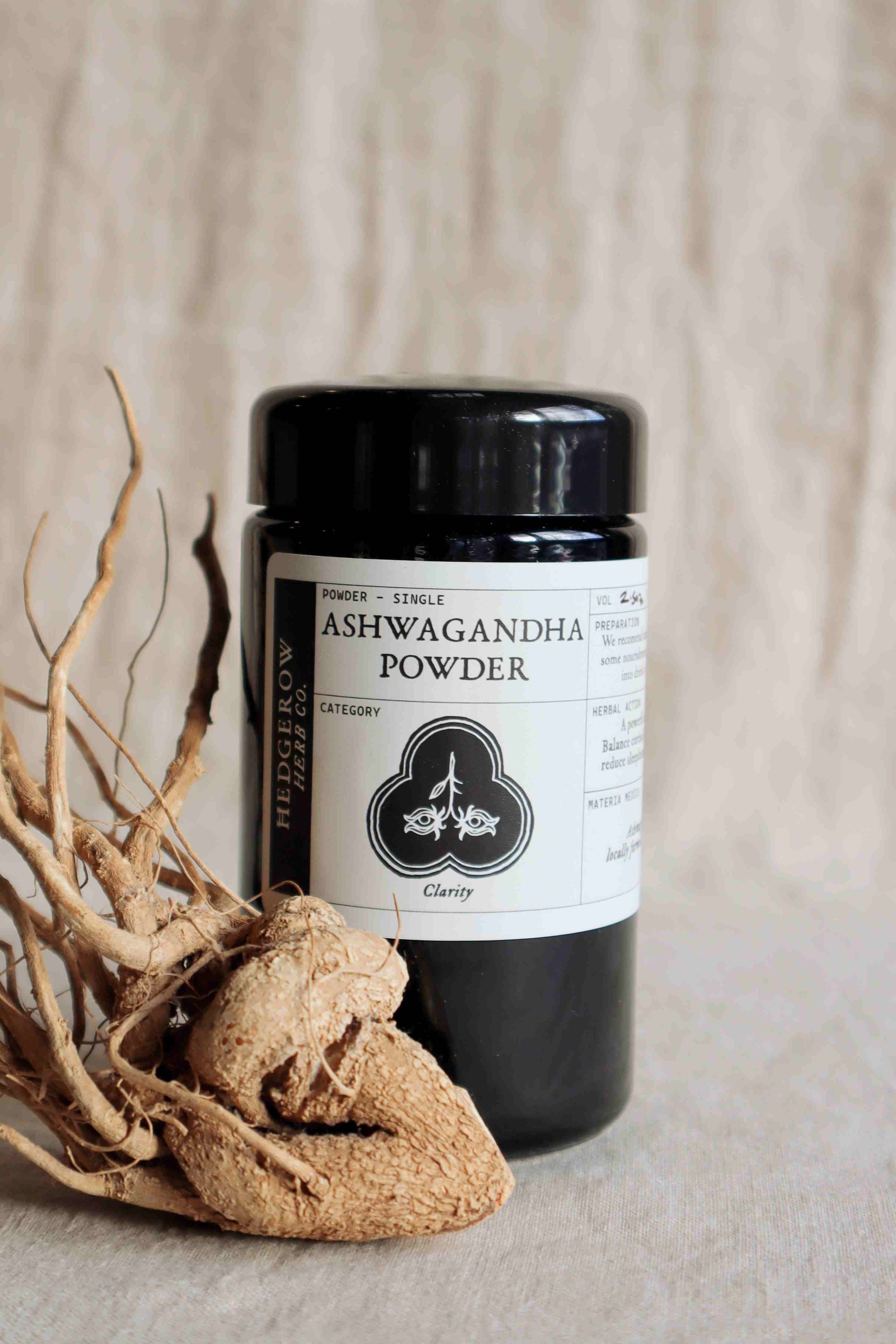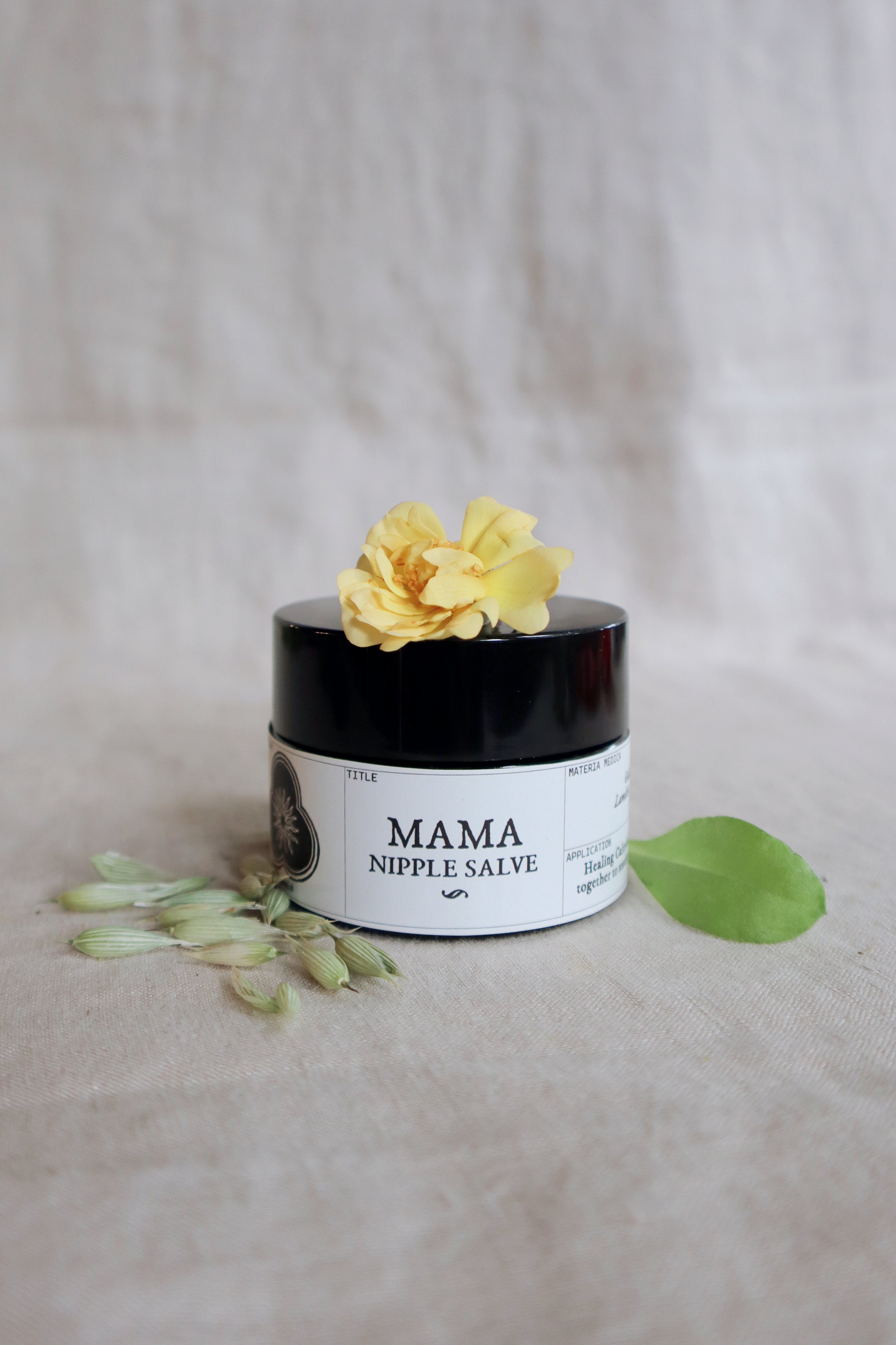 Image 1 of 2
Image 1 of 2

 Image 2 of 2
Image 2 of 2



ANCIENT MINERALS ︳Tea Blend
Replenish.
Nourish hair, skin, nails, bones, & joints- as the ancients did. A vitamin in tea form.
Replenish.
Nourish hair, skin, nails, bones, & joints- as the ancients did. A vitamin in tea form.
Replenish.
Nourish hair, skin, nails, bones, & joints- as the ancients did. A vitamin in tea form.
-
Nettle†, Rose Hips†, Oat Straw†, Tulsi†, Horsetail†
† : organic
-
Nettle, also known as Urtica dioica, is a plant that's rich in several vitamins and minerals. Some of the vitamins found in nettle include:
Vitamin A: Important for vision, immune function, and skin health.
Vitamin C: An antioxidant that supports immune function, collagen synthesis, and iron absorption.
Vitamin K: Essential for blood clotting and bone health.
Vitamin E: An antioxidant that helps protect cells from damage.
Vitamin B complex: Includes vitamins such as B1 (thiamine), B2 (riboflavin), B3 (niacin), B5 (pantothenic acid), B6 (pyridoxine), and B9 (folate). These vitamins play various roles in metabolism, energy production, and overall health.
In addition to vitamins, nettle also contains minerals like calcium, magnesium, iron, and potassium, as well as other beneficial compounds like flavonoids and carotenoids.
Rose hips, are the fruit of the rose plant and are known for their high vitamin C content, but they also contain other vitamins and minerals. Here are the main vitamins found in rose hips:
Vitamin C: Rose hips are exceptionally rich in vitamin C, even more so than oranges. Vitamin C is an antioxidant that supports the immune system, helps with collagen production for healthy skin, and aids in the absorption of iron.
Vitamin A: Rose hips contain provitamin A carotenoids, such as beta-carotene, which the body can convert into vitamin A. Vitamin A is essential for vision, immune function, and skin health.
Vitamin E: Rose hips contain vitamin E, which is a fat-soluble antioxidant that helps protect cells from damage caused by free radicals.
Vitamin K: Rose hips contain small amounts of vitamin K, which is important for blood clotting and bone health.
B Vitamins: Rose hips also contain small amounts of various B vitamins, including B1 (thiamine), B2 (riboflavin), B3 (niacin), B5 (pantothenic acid), B6 (pyridoxine), and folate. These vitamins play roles in energy metabolism, nerve function, and red blood cell formation.
Oat straw, is the green stem or leaves of the oat plant. Oat straw is rich in minerals such as calcium, magnesium, potassium, phosphorus, iron, zinc, and manganese. Here are the main vitamins found in oat straw:
Vitamin B Complex: Oat straw contains various B vitamins, including:
Vitamin B1 (Thiamine): Important for energy metabolism and nerve function.
Vitamin B2 (Riboflavin): Necessary for energy production and metabolism of fats, drugs, and steroids.
Vitamin B3 (Niacin): Essential for energy production and DNA repair.
Vitamin B5 (Pantothenic Acid): Involved in energy metabolism and hormone synthesis.
Vitamin B6 (Pyridoxine): Necessary for amino acid metabolism and neurotransmitter synthesis.
Vitamin B9 (Folate): Important for DNA synthesis and cell division.
Vitamin K: Oat straw contains small amounts of vitamin K, which is crucial for blood clotting and bone health.
Vitamin E: While present in smaller quantities, oat straw contains some vitamin E, which is an antioxidant important for cell protection.
Vitamin A: Oat straw may contain trace amounts of provitamin A carotenoids, which the body can convert into vitamin A. Vitamin A is essential for vision, immune function, and skin health.
Horsetail is rich in minerals, particularly silica, but it also contains other essential minerals. Here are the main minerals found in horsetail:
Silica (Silicon Dioxide): Horsetail is one of the richest plant sources of silica, which is essential for the formation of collagen, bones, and connective tissues. Silica also plays a role in maintaining healthy hair, skin, and nails.
Calcium: Horsetail contains calcium, a mineral important for bone health, muscle function, and nerve transmission.
Magnesium: Horsetail contains magnesium, which is involved in hundreds of biochemical reactions in the body, including energy production, muscle function, and nerve transmission.
Potassium: Horsetail contains potassium, an electrolyte that helps regulate fluid balance, nerve function, and muscle contractions.
Manganese: Horsetail contains manganese, a trace mineral that plays a role in bone formation, wound healing, and metabolism.
Iron: Horsetail contains iron, which is essential for the production of hemoglobin and red blood cells, as well as oxygen transport and energy metabolism.
Zinc: Horsetail contains zinc, an essential mineral that supports immune function, wound healing, and DNA synthesis.
Phosphorus: Horsetail contains phosphorus, which is important for bone health, energy metabolism, and cell membrane structure.
Tulsi, also known as Holy Basil, is a herb that is revered in Ayurvedic medicine for its apoptogenic properties. A delicious, aromatic herb that is rich in antioxidants, including vitamin C, vitamin E, and phytochemicals like flavonoids and polyphenols. These antioxidants help neutralize free radicals, reducing oxidative stress and lowering the risk of chronic diseases.
-
Steep for 5+ minutes in 140°,
a bit of honey is a splendid addition.
-
These statements have not been evaluated by the FDA. This product is not intended to diagnose, treat, cure, or prevent any disease.







